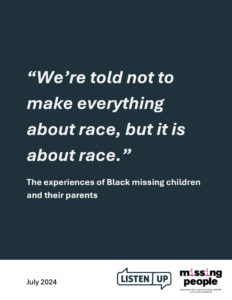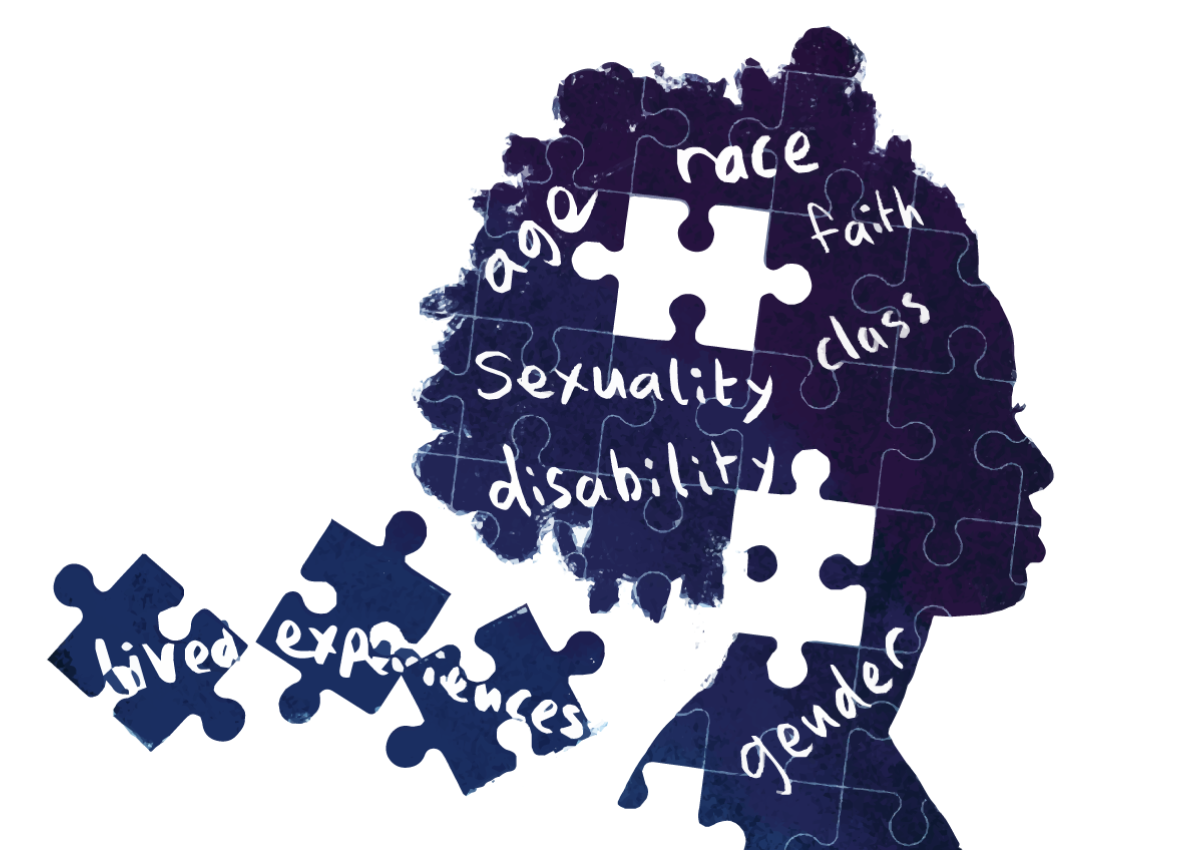
Workforce Development
Our support is designed to inspire, challenge and build confidence. We work closely with services and organisations to design bespoke packages to meet local needs.
Find out moreWe believe all voices matter and all voices should be heard
MORE ABOUT LISTEN UP

This research, conducted with Black children and parents of Black children who have been reported missing, explores the reasons why Black children are over-represented in missing statistics, and lived experience of the responses from society, police and other
professionals.
The report identifies a range of challenges and barriers, including systemic racism, that are putting Black children at greater risk when they go missing.
VIEW DETAILS
Our support is designed to inspire, challenge and build confidence. We work closely with services and organisations to design bespoke packages to meet local needs.
Find out more
We undertake commissioned and independent research which specifically focuses on traditionally unheard experiences in child protection and safeguarding.
Find out more
We provide key notes and presentations. If you are interested in having somone from Listen Up speak at your event, please get in touch to discuss further.
Find out more
Our work is underpinned by intersectional thinking. This means we acknowledge, explore and remain curious about all aspects of a person’s identity and how these influence their individual and systemic experiences.
We believe by applying intersectionality we are able to better meet the needs of marginalised and minoritised children and young people.
Intersectionality provides an opportunity to challenge universal thinking when working with children, young people and families in practice, policy and research.
Learn about adultification